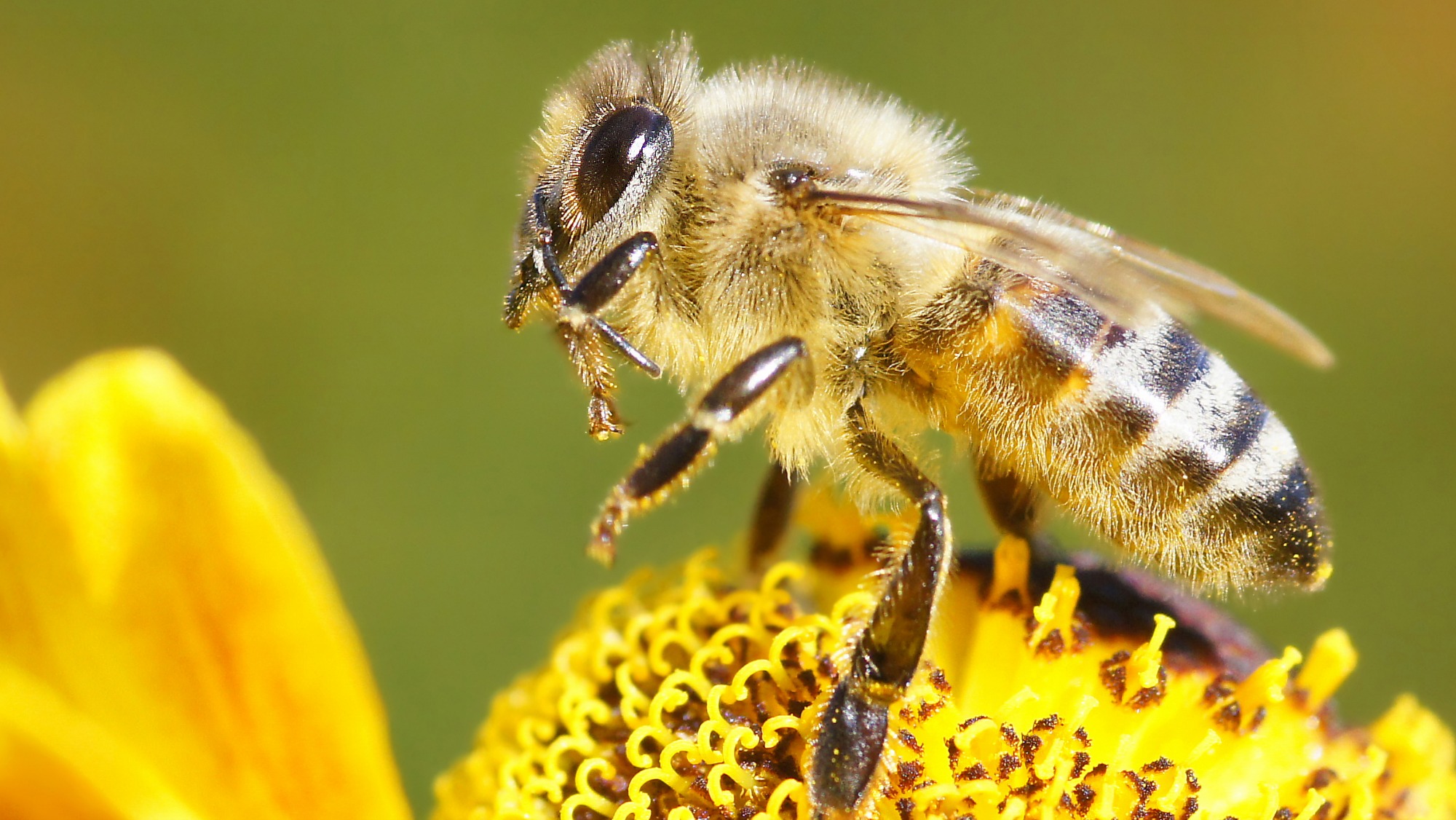It’s time to have a little talk about the flowers and the bees.
Major crops including soybeans and tobacco can suffer from a crippling malady called tobacco ringspot virus. The disease is spread through sex, which in the plant kingdom involves the freaky use of vibrating creatures: bees. Honeybees and other pollinators carry infected pollen from one plant to the other and, in doing so, can spread the virus, which is also called TRSV.
What’s really freaky is that scientists have discovered that bees can become infected with the ringspot virus of the plants upon which they feed. The researchers report in the journal mBio that the unusual inter-kingdom host-species jump could be linked to colony collapse disorder. Here’s more from Science Codex:
Toxic viral cocktails appear to have a strong link with honey bee Colony Collapse Disorder (CCD), a mysterious malady that abruptly wiped out entire hives across the United States and was first reported in 2006. …
When these researchers investigated bee colonies classified as “strong” or “weak,” TRSV and other viruses were more common in the weak colonies than they were in the strong ones. Bee populations with high levels of multiple viral infections began failing in late fall and perished before February, these researchers report. In contrast, those in colonies with fewer viral assaults survived the entire cold winter months. …
“The increasing prevalence of TRSV in conjunction with other bee viruses is associated with a gradual decline of host populations and supports the view that viral infections have a significant negative impact on colony survival,” these researchers conclude.
Listen up, bees! When you touch a plant’s pollen, you’re also touching the pollen of every other plant that plant has had sex with. So be careful out there.



